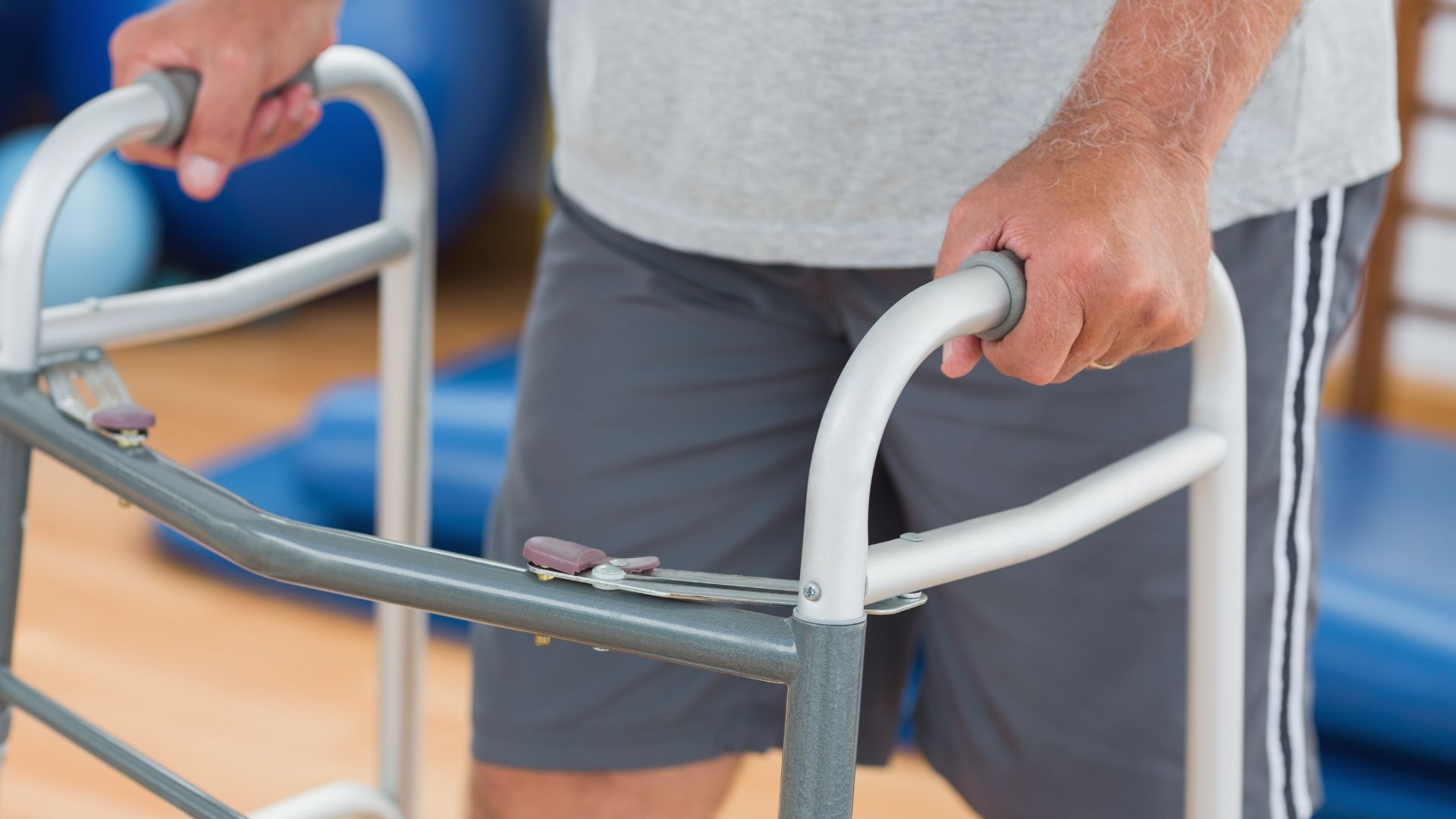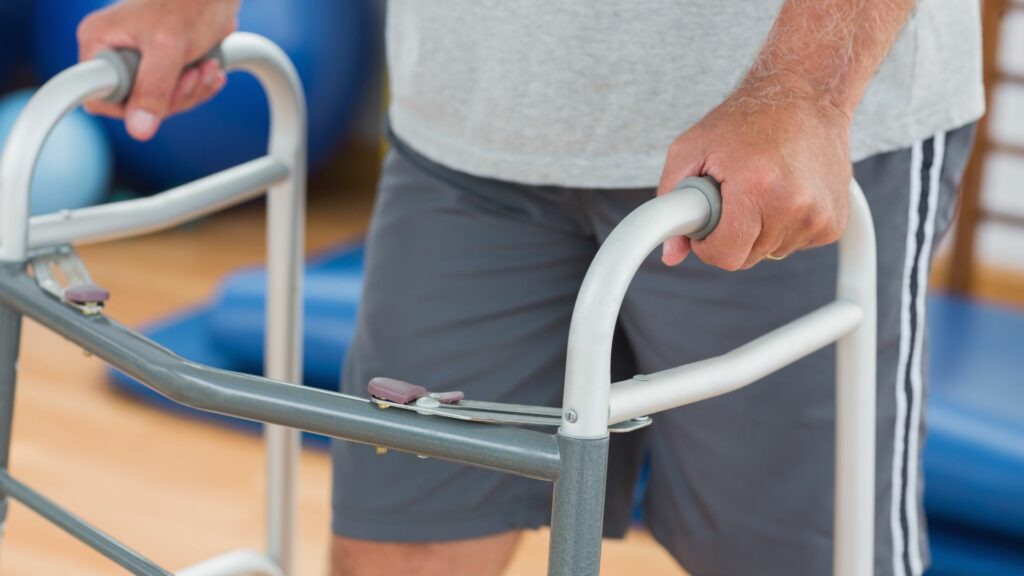
One of the things we tend to see arising again and again with cases of surgical medical negligence is issues surrounding the monitoring and care that patients receive post-surgery. Here we discuss, a recent case demonstrating this very point.
Max had been suffering from back pain for a while
Max had been suffering from lower back pain for some time before he had his surgery. It was affecting his ability to exercise, and he was keen to enjoy as active a retirement as possible. Max had been on an NHS waiting list and eventually had his surgery at a private hospital through the NHS. To address the back pain, his surgeon performed a fusion surgery that appeared to go well. However, in hindsight, a small dural tear was caused during the surgery, which went unnoticed at the time. A dural tear is a tear in the watertight sac of tissue that covers the spinal cord and spinal nerves. There is always a risk of such tears happening during any type of spinal surgery and the tear itself was not negligent. In most cases and where these tears are recognised at the time of the surgery, the surgeon can close them with stitches or a patch. If the tear is not seen during surgery, this can lead to a leak of cerebrospinal fluid (CSF), which causes specific symptoms. As long as this is recognised quickly, with careful management and intervention if required, the tear usually heals itself and the patient suffers no lasting damage.
In Max’s case his surgeon did not recognise the tear during the surgery and continued with the standard procedure of fitting Max with a drain at his wound site. Things initially seemed to be going well as Max managed to stand up and mobilise for short periods of time the day after the surgery but things took a turn for the worse that night when he started to feel nauseous. His drain was leaking more fluid than usual and by the next morning, Max’s speech was slurred and he felt disorientated and confused. These are symptoms of a CSF leak with potential complications affecting the brain, which is a neurological emergency.
Max continued to get worse
Even though all these symptoms were communicated to the consultant, they did not arrange for any imaging to be done to investigate the possibility of an evolving brain injury due to CSF leak. Although Max continued getting worse throughout the day, the consultant did not review his case again, leaving more junior colleagues and nurses to take responsibility for Max’s aftercare. With his condition getting worse by the hour the team looking after Max raised their concerns with the surgeon, who again did not ask for scans or carry out a full neurological examination of Max.
By late that night, Max had started falling in and out of consciousness and was finally sent for a scan. This showed that the brain had dropped because of the continuing loss of CSF, causing bleeding to the brain and significant pressure to build up around the brain causing damage to the tissues. At this point, Max went straight back into theatre for emergency surgery to reduce the pressure on his brain.
Within a period of less than 36 hours, Max had gone from being well enough to walk on day one post-surgery, to fighting for his life as the damage to his brain was such that his loved ones were told he was unlikely to survive. Thankfully the surgery went well and Max made it but his brain injury left him with some very significant life-long disabilities. He now needed to use a Zimmer frame to move around the house as he had suffered severe hemiplegia, a condition caused by his brain injury that significantly reduced his control of one side of his body. He was left with extremely poor balance and also needed a wheelchair to move around outside the house. Max regained his power of speech but his injury had significantly affected his memory and he suffered from confusion and loss of concentration.
He found it very difficult to understand and adapt to his change in circumstances
After getting access to Max’s medical filesKym Provan, the medical negligence expert that represented Max, instructed a number of experts including a consultant neurosurgeon, to investigate the case on Max and his family’s behalf. The private hospital and the surgeon concerned initially denied that they had done anything wrong. Even though the hospital eventually agreed that they should have performed a scan sooner, they argued that the scan would not have mandated the need for corrective surgery. The hospital argued that even with earlier scanning, they would have continued to simply monitor Max’s condition until he took a real turn for the worse, by which time the final outcome would not have been any different.
Max’s team obtained supportive evidence from a number of doctors who advised that they would have approached this situation very differently, In their opinion, earlier scanning should have led to urgent surgery, which would have prevented Max from suffering any permanent brain injury. With their help, the team were able to argue that the position adopted by the hospital did not stand up to logical analysis.
During the course of the case, the extent of Max’s difficulties with memory and concentration led the doctors helping with the case to advise that they did not think that Max had capacity to manage his own financial affairs or to run the litigation himself. Max’s team supported the family to make an application to the Court of Protection to confirm this and to appoint a professional Deputy to help Max to manage his financial affairs. Max’s wife was appointed as his Litigation Friend, giving her the authority to instruct on his behalf, although Max was still very much involved in the decision-making process to the extent that he was able.
MAx’s CASE WAS ultimately settledfor over a million pounds despite the hospital denying liability
With these funds, Max and his wife will be able to move to more suitable accommodation enabling him to have more independence in the house. They are able to hire full time carers to help him with his everyday tasks and allow the couple to start going back to being husband and wife instead of dependent and carer. Max is able to access physiotherapy to maximise his physical abilities and occupational therapy to help him regain some of his socialisation skills and to improve his self-confidence. Even though life does look very different for the couple than that which they had anticipated for their retirement, they now have the means to adjust to it more comfortably and prepare for the future.
As mentioned, the negligence in this case took place at the aftercare level instead of the initial surgery itself. Kym Provan, the medical negligence partner that represented Max said “it unfortunately does not come as a surprise that Max’s surgery had taken place on a Friday and the substandard follow up care he received was over the weekend. Another trend we seem to see that is in line with Max’s experience is the reluctance of private consultants to refer back to the NHS for urgent scans/possible ITU care.”
We are expert clinical negligence solicitors
If you or your loved one suffered an injury following surgery, it is important that you speak to a specialist solicitor that has the experience and knowledge to understand what may have gone wrong. Surgical claims are very complicated because of the inherent level of risk associated with these procedures, and not all adverse outcomes will be as a result of negligent treatment. However, even in cases like Max’s, where liability was denied up until the last minute,
if your solicitor has the right level of expertise and access to the right type of experts, it may still be possible for them to successfully pursue your case and get you the compensation and support you need and deserve.
If you have any concerns, contact us for a free and confidential consultation.






